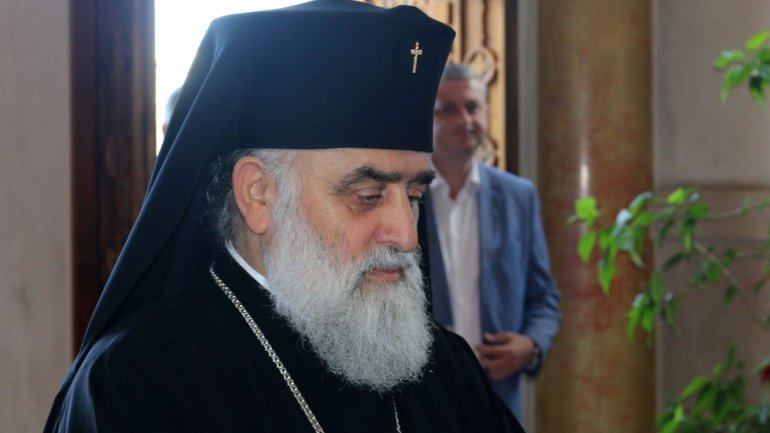Georgian Orthodox Church explains the situation with recognition of the autocephaly of the OCU

The Georgian Orthodox Church is unlikely to have opponents of the idea of ecclesiastical independence of Ukraine. This was stated by the Rector of the University of New Georgia, Professor, PhD, Chair of the Publishing and Reviewing Department of the Georgian Patriarchate, Metropolitan Grigoli of Poti and Khob in an interview with Religiyna Pravda (Religious Truth).
"The aspirations of the Ukrainian people are very close and understandable to us. Ukrainians are the people who are always fighting for freedom, remain faithful to Orthodoxy and seek salvation under the protection of the Most Holy Theotokos," the Metropolitan stressed.
Answering the question of why the Georgian Church does not officially express its position on the Autocephalous Orthodox Church of Ukraine, Metropolitan Grigoli has noted that this does not mean its rejection.
"We also discussed this at the meeting of the Holy Synod, which was held on December 27, 2018. Thus, different opinions have been expressed, but this is a natural process. The episcopate perfectly understands the desire of the Ukrainian people to have their own independent Church.
It is because of this that the Holy Synod did not make a final decision, and temporarily postponed consideration of this issue. If there was an unequivocally negative attitude towards the Orthodox Church of Ukraine, the synod would officially declare its anti-canonicity, and its further reaction would be the same as in the Moscow Patriarchate, but as you can see, this did not happen, the Georgian Church did not take this path, which in the current circumstances should be evaluated positively," the Georgian Metropolitan said.
He also stressed: "I commend the attempts of the Ecumenical Patriarchate (and any local churches) to heal the wounds on the living body of the Church of Christ and return to the bosom of the canonical Church their children, who for various reasons were outside the canonical borders. The Church maintains a principle of oikonomia, which makes it possible to return the "prodigal son to his father". I think that the Patriarchate of Constantinople was guided by this principle when it accepted and considered appeals from religious communities in Ukraine."









